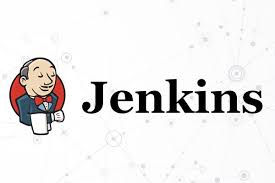Jenkins Build and Deployment with Docker: A Complete Guide
- Steve Smith

- Jul 8
- 4 min read

When it comes to automating builds and deployments, few tools are as popular as Jenkins and Docker. In today’s fast-paced development world, delivering software quickly and reliably is critical. That’s where Jenkins and Docker together shine — automating your build pipelines while ensuring consistency across environments.
In this guide, we’ll break down how to use Jenkins for building and deploying applications using Docker. Whether you're just starting out or looking to streamline your existing CI/CD process, this casual, easy-to-follow article is for you.
Why Use Jenkins with Docker?
Before diving into the how-to, let’s understand the benefits of using Jenkins and Docker together:
Isolation and Consistency: Docker containers make sure your app runs the same way, every time.
Scalability: Jenkins can manage multiple builds simultaneously in isolated containers.
Speed: Using Docker agents with Jenkins can significantly speed up build and deployment.
Portability: Build once, run anywhere — from development to production.
Setting Up Jenkins for Docker-Based Projects
Let’s walk through the steps to configure Jenkins with Docker for your projects.
Step 1: Install Docker on the Jenkins Host
First, ensure Docker is installed on the machine where Jenkins is running. You can use the following commands for most Linux distributions:
sudo apt update
sudo apt install docker.io
sudo systemctl start docker
sudo systemctl enable docker
Don't forget to add the Jenkins user to the Docker group:
sudo usermod -aG docker jenkins
Restart Jenkins afterward so it recognizes Docker access.
Step 2: Install Docker Plugins in Jenkins
Next, install these key Jenkins plugins for Docker:
Docker Pipeline
Docker Commons
Docker Plugin
Go to Manage Jenkins > Manage Plugins, search for each plugin under the “Available” tab, and install them.
Step 3: Create a Dockerfile for Your Application
Now, you’ll need a Dockerfile in your project’s root directory. Here’s a simple example for a Node.js app:
FROM node:18-alpine
WORKDIR /app
COPY . .
RUN npm install
CMD ["npm", "start"]
This image will be built during your Jenkins pipeline execution.
Step 4: Create a Jenkins Pipeline Script
Use Declarative Jenkins Pipelines to define the build and deployment steps. Here’s a sample Jenkinsfile that uses Docker to build and run the app:
pipeline {
agent any
stages {
stage('Clone Repository') {
steps {
git 'https://github.com/your-repo/your-app.git'
}
}
stage('Build Docker Image') {
steps {
script {
dockerImage = docker.build("your-app-image:${env.BUILD_ID}")
}
}
}
stage('Run Container') {
steps {
script {
dockerImage.run('-d -p 3000:3000')
}
}
}
}
post {
always {
echo 'Cleaning up...'
sh 'docker system prune -f'
}
}
}
This pipeline does the following:
Clones the repository
Builds a Docker image
Runs the container
Cleans up after the build
Jenkins Docker Deployment Best Practices
To get the most out of Jenkins Docker deployment, keep these tips in mind:
Use Jenkins Agents in Docker
Instead of running Jenkins directly on your host, consider using Jenkins agents in Docker containers. This makes the setup more scalable and manageable.
Keep Docker Images Lightweight
Always base your images on slim distributions like Alpine. Smaller images mean faster builds and deployments.
Secure Your Pipelines
Avoid hardcoding credentials. Use Jenkins Credentials Manager to handle secrets like Docker Hub credentials or SSH keys.
Automate Everything
Trigger your pipeline on every commit using webhooks or polling. Automation is the key to faster and more reliable delivery.
Benefits of Jenkins Build and Deployment with Docker
Here are some concrete advantages of integrating Jenkins with Docker for build and deployment:
Faster Feedback Loops: Jenkins pipelines let you catch bugs early.
Reproducibility: Docker ensures the same environment for everyone — developers, testers, and ops.
Better Resource Utilization: Run multiple builds on the same host without conflict.
Easy Rollbacks: Container images can be versioned and rolled back easily.
Final Thoughts
If you’re looking to supercharge your CI/CD process, using Jenkins for Docker-based builds and deployments is a smart move. It’s a powerful combo that helps automate, scale, and simplify your DevOps workflows.
Whether you’re working on microservices, monoliths, or anything in between, Jenkins and Docker together can take your automation to the next level. So get started today — create your Jenkinsfile, build your Docker image, and deploy with confidence.
And if you're new to Jenkins or want to deepen your understanding, consider taking a comprehensive Jenkins course that covers everything from pipeline basics to advanced integrations with Docker and Kubernetes. It’s a great way to build confidence and streamline your DevOps journey.
FAQs
Q1. Can Jenkins run Docker containers?
Yes, Jenkins can run Docker containers using the Docker plugin. You can define Docker steps inside Jenkins pipelines to build images and run containers directly.
Q2. Do I need Docker installed on the Jenkins host?
Yes, Docker must be installed on the Jenkins host machine if you want Jenkins to build or run Docker containers. You also need to make sure the Jenkins user has permission to use Docker.
Q3. How do I deploy Docker containers using Jenkins?
You can deploy Docker containers by writing a pipeline that builds a Docker image and then runs a container using the docker run command. Advanced users may also deploy to Kubernetes or push to a container registry.
Q4. Is Jenkins good for CI/CD with Docker?
Absolutely. Jenkins is one of the most powerful CI/CD tools, and when combined with Docker, it offers a highly flexible and scalable environment for building and deploying apps.








Comments